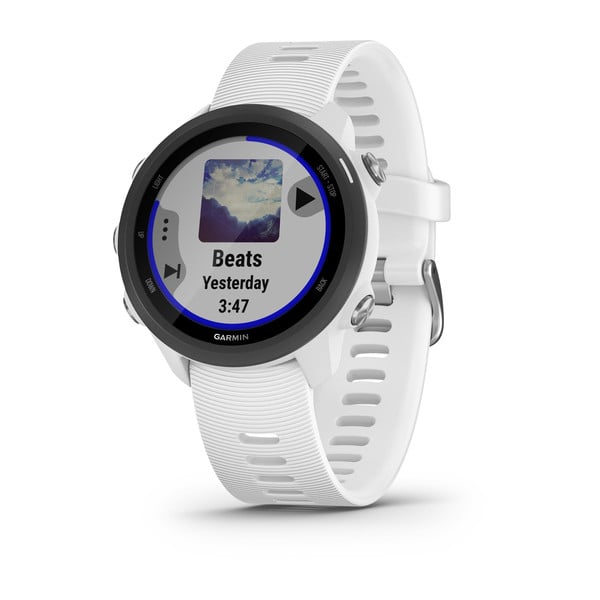
Five Reasons You Don’t Always Recognize Stress
By Riikka Lamminen, Content Manager, Firstbeat
The first thing you should know about stress is that it isn’t necessarily a bad thing. Stress is an inevitable part of life, and you couldn’t cope without it. You need stress to get things done and perform in life. It makes you feel excited and productive.
However, stress becomes a serious problem when it exceeds your ability to recover and bounce back. Especially troubling is the fact that we often don’t realize that our ability to manage is on the decline.
Excessive stress can manifest in many ways, and you may not always be able to recognize whether your symptoms are the result of too much strain or inadequate recovery. You may blame your diet for your upset stomach or treat insomnia with drugs, but both might actually be signals that your body is being overloaded by stress.
While the signs and symptoms of excessive stress vary from person to person, the stress response is a physiological phenomenon that can be observed and measured.
The Firstbeat analytic engine uses heartbeat data to examine the reactions of your autonomic nervous system. Activity in the sympathetic branch signals stress, while parasympathetic dominance indicates rest and recovery. As a result, hidden stress that you may not have been aware of becomes visible and easy to manage.
Firstbeat All-day Stress & Recovery in your Garmin smartwatches with stress tracking makes activity within your autonomous nervous system visible, and helps you to discover how you react to the challenges of life and whether you have the balance between stress and recovery.
The signs of excessive stress are typically classified into four categories: physical, emotional, behavioral and cognitive. Here are some of the most common symptoms:
| Physical | Emotional | Behavioral | Cognitive |
| Headache | Anxiety | Change in appetite | Memory problems |
| Stomach problems | Depression | Nervous habits (like nail biting) | Inability to focus |
| Loss of sex drive | Irritability | Social withdrawal | Poor judgment |
| Frequent colds or other infections | Feeling overwhelmed | Increased use of drugs, alcohol, or tobacco | Disorganization |
The symptoms of prolonged exposure to excessive stress vary widely from one person to the next, and even knowing the symptoms can make stress-related issues difficult to recognize.
Five reasons why you might not recognize you are overly stressed
There are several reasons why people don’t always recognize that they are stressed. Here are some of the most common reasons for hidden stress.
1. Stress is not always
It is not only negative things that cause stress. Excitement, the anticipation of Christmas morning and the butterflies of a first date are some common examples of pleasant emotional experiences that produce physiological stress. It is not always easy to notice the strain of positive things, but much like chocolate cake, it’s possible to have too much of a good thing.
2. Stress is not in your head.
Sometimes stress is triggered by our environment, what we consume and by our activities. Extreme temperatures trigger stress, as do noisy environments. Sometimes even our own relaxation methods cause stress. Alcohol is the most common source of fake relief. You might feel relaxed after few drinks, but your body is working overtime to handle the effects of the alcohol.
Exercise is a common way to relieve stress, and it is a good one. However, the way exercise decreases stress is a bit tricky. Working out increases sympathetic activity and decreases parasympathetic activity. The more intense the exercise, the greater the stress; however, it has been shown that regular exercise and good fitness produce physiological adaptations that improve your body’s ability to adjust to stress. So in addition to other benefits of exercise, it is a great stress-buster in the long run.
3. Perception is reality.
Sometimes it is hard to recognize where stress comes from because it might not be anything specific. Stressors are not always tangible things you can nail down. You might, for example, feel that your boss is unsatisfied with you. Regardless of whether this is true or not, feelings of inferiority raise your stress levels. And trying to compensate by working overtime and pushing yourself even harder only makes matters worse.
4. It is the overall load that counts.
As mentioned earlier, stressors can be mental or physical, accompanied by negative or positive emotions. Oftentimes, excessive levels of stress are not caused by one big factor but rather a confluence of smaller factors. Little things add up to big ones.
If you are having a tough time at work, it is not always smart to fill your free time with high-intensity workouts and other stress-inducing activities. Instead, go for a walk and relax for a moment. The more strain you have in life, the more focused you need to be on good recovery to create the right balance.
5. High stress is the new normal.
Unfortunately, you might be so used to being stressed that you don’t notice that something is wrong. Or you might have just accepted it. You might think that hectic schedules and feeling overwhelmed are a normal part of life. They shouldn’t be.
Firstbeat stress monitoring technologies reveal the presence and intensity of stress reactions in your body, even when you don’t notice them. When hidden stress is revealed, it becomes easier to make smarter, more personal decisions. Remember, ultimately your goal isn’t to eliminate stress (that’s impossible). Instead, keep an eye on the amount of stress in your life and use that insight to guide your lifestyle choices and daily decisions.
Garmin smartwatches with All-day Stress Tracking & Recovery:
- Venu
- Venu 2S
- fēnix 6
- Forerunner 45/45S
- Forerunner 245/245 Music
- Forerunner 645
- Forerunner 945
- vívosport
- vívosmart 3
- vívosmart 4
- vívomove HR
- vívomove Series
- vívoactive 3/3 Music
- vívoactive 4/4S
- Swim 2
- MARQ Collection
- Instinct
- Tactix Charlie
- Tactix Bravo







